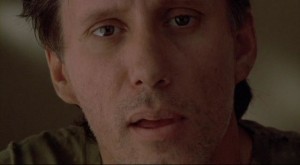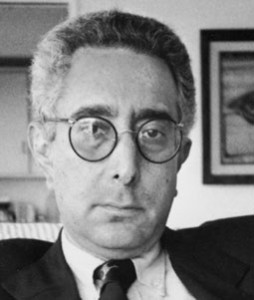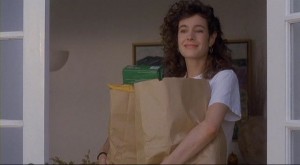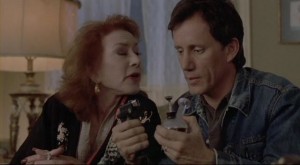The Boost

James Woods was the best American actor of the 1980’s. What made his performances so interesting were not just his intensity, vitality, and believability, but that he often did it with a sub-par script and/or direction. For every Salvador and Videodrome, there was Cop, True Believer, and Best Seller. This even extended to his 90’s films, often the only shining moment in utter dreck (The Specialist, The General’s Daughter), or in you-can’t-look-away-brilliance in the face of obvious moralizing and oversimplification (Citizen Cohn).
The Boost, which would seem to be the perfect project for Woods, an independently financed adaptation of an acclaimed novel, with a director he was comfortable with and worked with before (Harold Becker, The Onion Field), concerning a man pushed to his limits both within his work and family, a life ruined by drugs and ambition.
 Unfortunately, the book (called Ludes, but it was updated to be about cocaine for the 1980’s), was written by former Nixon speech writer Ben “Bueller, Bueller, Bueller” Stein.
Unfortunately, the book (called Ludes, but it was updated to be about cocaine for the 1980’s), was written by former Nixon speech writer Ben “Bueller, Bueller, Bueller” Stein.
And while being a monotone, conservative nerd does not prevent you from having insight on drugs, it is unlikely that Stein had a great deal of experience being the life of the party, which is the content of this particular film. The result is a lot closer to 1988’s version of Reefer Madness, made with complete sincerity (as revealed on the DVD commentary track, featuring Woods and Becker), over-the-top without any self-awareness, every cliché known to man, a movie so fantastically bad, that each scene leaves you completely stunned. The opening sequence of the film sets the tone, where Woods, as a hapless, sweaty, honest salesman, tries to pitch his wares in such a clunky, sad fashion, that you swear for the first 20 minutes of the film (long after this introductory scene), that the whole thing is a scam, and he’s actually a con artist.
 Things don’t improve once we meet Woods’ idyllic wife, Sean Young (who later stalked him in real life), the most wooden and stilted of all actresses, especially as Woods tells every other character in the film, repeatedly, that “isn’t she beautiful, I don’t deserve her, she’s just so wonderful,” despite all evidence to the contrary. Not that Young isn’t attractive, she’s just such a blank slate that one can’t possibly imagine interacting with her for more than 30 seconds.
Things don’t improve once we meet Woods’ idyllic wife, Sean Young (who later stalked him in real life), the most wooden and stilted of all actresses, especially as Woods tells every other character in the film, repeatedly, that “isn’t she beautiful, I don’t deserve her, she’s just so wonderful,” despite all evidence to the contrary. Not that Young isn’t attractive, she’s just such a blank slate that one can’t possibly imagine interacting with her for more than 30 seconds.
 With Woods’ career stalling in NY, he gets an offer to come out to LA to sell, his new boss (played by Steven “Adam Schiff” Hill) having taken a liking to him because he is so honest. Really. An honest salesman. And of course, the money comes rolling in, along with the fancy cars and glitzy house. And our naive innocents don’t know how to handle the new success. From there, the progression is obvious, the moralizing inevitable. Supporting characters might as well be cackling as they knowingly spoil the lives of our lovebirds with drugs and temptation. As a result, life spirals out of control, violence, bankruptcy, withdrawal, and everything else that only comes as a surprise to Woods and Young.
With Woods’ career stalling in NY, he gets an offer to come out to LA to sell, his new boss (played by Steven “Adam Schiff” Hill) having taken a liking to him because he is so honest. Really. An honest salesman. And of course, the money comes rolling in, along with the fancy cars and glitzy house. And our naive innocents don’t know how to handle the new success. From there, the progression is obvious, the moralizing inevitable. Supporting characters might as well be cackling as they knowingly spoil the lives of our lovebirds with drugs and temptation. As a result, life spirals out of control, violence, bankruptcy, withdrawal, and everything else that only comes as a surprise to Woods and Young.
The fact that The Boost isn’t all some sort of joke is amazing, but like with Danny Boyle and A Life Less Ordinary, you never know what smart, canny people in their prime will come up with when they want to teach us a life lesson, and they really mean it.




Trthmastr says:
January 3rd, 2017
2:53 am
This was a fantastic movie. Not only was it riveting, but it’s dialogue was pioniant. One of my favorites. The fact that you lambast every facet of it, and every actor in it ( besides Woods) shows you have a bias opinion based on some pro drug left wing agenda. It’s easy to critisize. Try creating a movie such as this which still holds its power and dramatic impact almost 30 years later. Besides snide predudicial reviews I’m sure the only thing you have created is belly button lint.